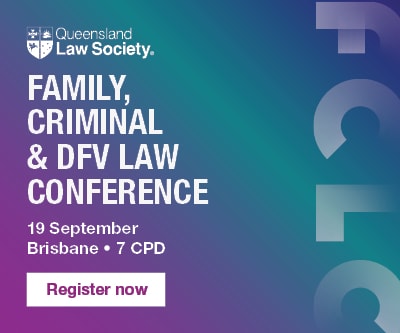Applicants for admission
Applicants for admission generally include three classes of persons as follows:
- local or interstate law graduates who have completed the required academic and practical legal training requirements;
- practitioners who are admitted in an Australian jurisdiction; and
- overseas law graduates and practitioners who are admitted in an overseas jurisdiction.
Local and interstate law graduates who have completed the required Practical Legal Training
All persons seeking admission must make an application to the Supreme Court of Queensland. The Supreme Court makes an order for persons seeking to obtain admission as a lawyer in Queensland. The role of the Board is to assist the Supreme Court by making a recommendation about each application.
The Board must consider each application and, in particular, whether or not —
- the application is made under the admission rules;
- the applicant is eligible for admission under this Act as a legal practitioner;
- the applicant is suitable for admission under this Act as a legal practitioner; and
- there are other matters the Supreme Court may consider relevant.
The Board may, by notice to an applicant for admission, require the applicant to provide stated documents and/or information and/or to cooperate with its inquiries. The Board may apply to the Supreme Court for a direction about a matter concerning an application.
Practitioners who are admitted in an Australian jurisdiction
Since Queensland has been part of the national legal profession since July 2004, there is no longer a need for practitioners admitted in an Australian jurisdiction to apply for admission to the roll of lawyers in Queensland. These practitioners are able to apply for a practising certificate as a solicitor or barrister based on their interstate admission.
However, in some instances, an interstate practitioner may still wish to seek admission in Queensland. An interstate practitioner is able to do so under the national Mutual Recognition Scheme governed by the Mutual Recognition (Qld) Act 1992. The application is made to the Registrar of the Supreme Court who forwards the application to the Board for consideration. Read more
Overseas Law Graduates and Practitioners
The Board also assesses academic qualifications, and practical legal training and experience in practice, attained or completed in a foreign country. In doing so, the Board may require an applicant with overseas law qualifications to complete additional academic qualifications prior to approving their overall qualifications as ‘approved academic qualifications’. The Board may also require an applicant to complete further practical legal training before approving overseas practical legal training and experience in practice as ‘approved practical legal training requirements’.
Legal practitioners who are admitted in New Zealand are able to seek admission in Queensland under the Trans-tasman Mutual Recognition (Qld) Act 2003. As with applications under the Mutual Recognition Scheme, the application is made to the Registrar of the Supreme Court who forwards the application to the Board for consideration. Read more
Persons considering entering the Legal Profession and/or Law Graduates
The Board assists law graduates and/or persons who are considering entering the legal profession by way of publishing detailed information as a guide. Such a person can obtain general guidance from the Board however. if a person has concerns relating to a suitability matter, they are also able to access the LACC’s Disclosure Guidelines, seek advice from their mover, they employer (if at a law practice) and/or obtain independent legal advice. Read more
The Board can provide permission to law students who wish to commence their practical legal training early, i.e. prior to completing their law program. Any such permission can only be granted in circumstances where the law graduate has completed all of the academic requirements for admission and has only two academic subjects outstanding from their law program. Read more
Law Graduates intending to complete practical legal training under the Supervised Trainee Scheme
The Board administers the supervised trainee scheme and considers applications for law firms and/or law graduates intending to complete a supervised traineeship. Read more
Universities and Practical Legal Training Providers
In conjunction with the Honourable Chief Justice, the Board approves academic qualifications and practical legal training requirements as ‘approved academic qualifications’ and ‘approved practical legal training requirements’. In doing so, the Board scrutinises all law and practical legal training courses offered by practical legal training providers and tertiary institutions in Queensland. Read more
The Community
The Board assists the wider community by providing information about eligibility for admission (‘approved academic qualifications’ and ‘approved practical legal training’), suitability matters, and applications for admission in general. In addition, it assists the community giving guidance in relation to providing the Board with an objection to an application for admission.
Other Stakeholders
The Board is consulted on a range of issues being considered by a variety of stakeholders such as the Judiciary, the Department of Justice, the Law Admissions Consultative Committee (LACC), Queensland universities, etc.


